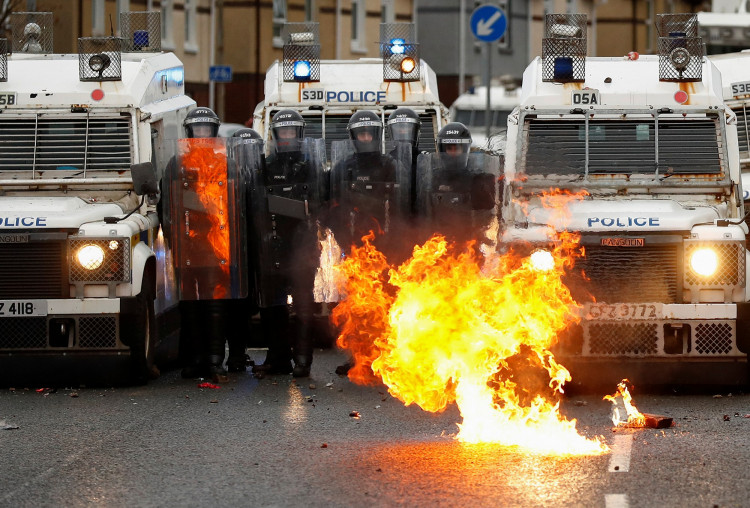The number of police injured in protests in Northern Ireland rose to more than 55 Friday as violent demonstrations escalated late Thursday. Protesters - mostly young men - hurdled petrol bombs in Belfast and hijacked a bus.
Unrest has spilled on to the streets since Good Friday in pockets of unionist areas in Derry, Belfast and other towns in County Antrim. Cars have been set on fire and petrol bombs and masonry have been thrown at police.
Tensions in loyalist communities have been heightened since Brexit checks came into force in January and there is a wider unease in the unionist community that the constitutional position of Northern Ireland has been put under threat by the Brexit settlement. The post-Brexit trade rules for Northern Ireland were a point of contention for the parties in the Protestant-Catholic power-sharing Belfast government.
Unionists are angry too at authorities' decision not to prosecute Sinn Fein politicians who attended the funeral of a former Irish Republican Army commander. The funeral attracted a large crowd in violation of coronavirus regulations. Unionist parties have called on the resignation of Northern Ireland's police chief.
Police have struggled to control rioters throwing petrol bombs, bricks, fireworks and other projectiles over the concrete "peace wall" separating the Irish nationalist area from Shankill Road.
Northern Ireland's assistant chief police constable Jonathan Roberts said crowds from both sides were "committing serious criminal offenses." Protesters attacked police and each other, Roberts said. Roberts said at least 55 police officers had been injured during the riots.
UK Prime Minister Boris Johnson appealed for calm. He said both sides should resolve differences through talks.
Northern Ireland First Minister Arlene Foster and deputy First Minister Michelle O'Neill of the Irish nationalists both echoed Johnson's call while also condemning several consecutive nights of disorder.
Authorities believe outlawed paramilitary groups may have incited young people to participate. "We saw young people participating in serious disorder and committing serious criminal offenses and they were supported and encouraged and the actions were orchestrated by adults," Roberts said.






